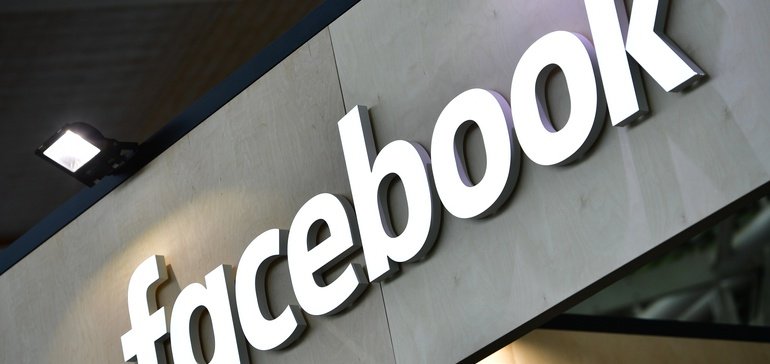SOCIAL
New Study Finds Facebook’s Interest Targeting is Inaccurate Around 30% of the Time

So how accurate are Facebook’s ad targeting options anyway?
The platform has made headlines in recent years over its intricate audience targeting process, which learns about your traits and interests based on in-app activity, then funnels that info into its ad targeting engine, enabling brands to present their offers to the most engaged, receptive audience through its various display options.
Political activists have reportedly used this to sway voter opinions, brands have been able to target users based on things that they may not even realize that they’re interested in themselves as yet. Some studies have even suggested that Facebook knows more about you than friends or family – but in reality, what’s the actual accuracy rate of Facebook’s ad targeting options, and what are the implications of false positives on ad spend?
That’s what a team from North Carolina State University sought to find out, with a new study that examined the specific performance of Facebook’s interest tracking, and how it allocates behaviors and topics to each user.
Their topline finding – around 30% of Facebook’s inferred interests are inaccurate or irrelevant, which could have significant implications for ad spend.
As explained in the study:
“To obtain insights into how Facebook generates interests from a user’s Facebook activities, we performed controlled experiments by creating new accounts and systematically executing numerous planned activities. We found 33.22% of the inferred interests were inaccurate or irrelevant. To understand if our findings hold for a large and diverse sample, we conducted a user study where we recruited 146 participants (through Amazon Mechanical Turk) from different regions of the world to evaluate the accuracy of interests inferred by Facebook. We developed a browser extension to extract data from their own Facebook accounts and ask questions based on such data. Our participants reported a similar range (29%) of inaccuracy as observed in our controlled experiments.”
It is worth noting that this is a relatively small-scale study pool – Facebook has more than 2.9 billion monthly active users, so a group of 146 test subjects is only a fractional element.
But it’s process-focused the results likely hold nonetheless – as noted here, in the first element, the researchers conducted contained testing around how Facebook attributes interests based on activity, with the experimental profiles starting from blank, meaning they had no specific interests attached to begin with.
“Researchers created 14 new user accounts on Facebook. Researchers controlled the demographic data and behavior of each account, and tracked the list of interests that Facebook generated for each account. This experiment allowed us to see which activities were associated with Facebook inferring an interest, and the key finding here is that Facebook takes an aggressive approach to interest inference – even something as simple as scrolling through a page led to Facebook determining that a user has an interest in that subject.”
Of course, everyone knows that Facebook is tracking everything that you do in the app, but based on this study, even the smallest action can cause an inference in your ad targeting profile, which can lead to inaccurate targeting.
The researchers also note that Facebook’s system often doesn’t distinguish between positive and negative interactions, which can also lead to inaccuracies.
“For instance, we commented negatively on a Harry Potter page and received interests in Harry Potter and Daniel Radcliffe (the lead actor in the Harry Potter movies).”
The study also showed that, at times, Facebook’s system will incorrectly attribute entities:
“For example, upon visiting the Apple (Tech company) page, Apple (fruit) was inferred as an interest.”
There would be varying degrees of errors within this type of matching, and these are just some examples of how your interests are sometimes misattributed in the app – which is probably not overly surprising, but the scale of inaccurate results is worthy of note.
Could this be because of Apple’s ATT update?
It’s possible that, due to Facebook losing data insight, as more users cut it off from tracking on iOS as a result of Apple’s ATT prompts, that Facebook is now putting more emphasis on in-app signals to fuel its audience segmentation instead. We don’t have comparative data on this, as the majority of this study was conducted after the implementation of Apple’s ATT alerts (in April 2021), but that could be another element at play, which could skew Facebook’s tracking.
But either way, it’s an interesting consideration. Up till now, Facebook’s data-gathering machine has been viewed as the most comprehensive tracking system ever created, and a powerful audience targeting engine. But if it’s not accurate 1/3 of the time, that’s a concern, which could reduce advertising performance.
So what do you do about it? Well, as an advertiser, there’s not much that you can do.
Using Lookalike Audiences and similar matching should improve accuracy, based on a range of factors, as opposed to singular topic matching – but really, you’re putting trust in Facebook’s systems to drive the best results, which means that if there are errors in attribution, that will impact your performance.
Meta is always working to improve its systems in this respect, and more recent feedback has been that Facebook ad targeting and performance is improving, so it could also be that these errors are being ironed out over time. But it really comes down to tracking your ad performance, and refining based on the results that you see. Facebook ads require a learning phase to maximize performance, and you would hope, within that, that it’s also weeding out false positives like this.
But it’s an interesting study either way, which could provide additional insight into your campaign performance.
You can read the full study and summary here, while you can check out what Facebook thinks your interests are here.
Source link
SOCIAL
Snapchat Explores New Messaging Retention Feature: A Game-Changer or Risky Move?

In a recent announcement, Snapchat revealed a groundbreaking update that challenges its traditional design ethos. The platform is experimenting with an option that allows users to defy the 24-hour auto-delete rule, a feature synonymous with Snapchat’s ephemeral messaging model.
The proposed change aims to introduce a “Never delete” option in messaging retention settings, aligning Snapchat more closely with conventional messaging apps. While this move may blur Snapchat’s distinctive selling point, Snap appears convinced of its necessity.
According to Snap, the decision stems from user feedback and a commitment to innovation based on user needs. The company aims to provide greater flexibility and control over conversations, catering to the preferences of its community.
Currently undergoing trials in select markets, the new feature empowers users to adjust retention settings on a conversation-by-conversation basis. Flexibility remains paramount, with participants able to modify settings within chats and receive in-chat notifications to ensure transparency.
Snapchat underscores that the default auto-delete feature will persist, reinforcing its design philosophy centered on ephemerality. However, with the app gaining traction as a primary messaging platform, the option offers users a means to preserve longer chat histories.
The update marks a pivotal moment for Snapchat, renowned for its disappearing message premise, especially popular among younger demographics. Retaining this focus has been pivotal to Snapchat’s identity, but the shift suggests a broader strategy aimed at diversifying its user base.
This strategy may appeal particularly to older demographics, potentially extending Snapchat’s relevance as users age. By emulating features of conventional messaging platforms, Snapchat seeks to enhance its appeal and broaden its reach.
Yet, the introduction of message retention poses questions about Snapchat’s uniqueness. While addressing user demands, the risk of diluting Snapchat’s distinctiveness looms large.
As Snapchat ventures into uncharted territory, the outcome of this experiment remains uncertain. Will message retention propel Snapchat to new heights, or will it compromise the platform’s uniqueness?
Only time will tell.
SOCIAL
Catering to specific audience boosts your business, says accountant turned coach

While it is tempting to try to appeal to a broad audience, the founder of alcohol-free coaching service Just the Tonic, Sandra Parker, believes the best thing you can do for your business is focus on your niche. Here’s how she did just that.
When running a business, reaching out to as many clients as possible can be tempting. But it also risks making your marketing “too generic,” warns Sandra Parker, the founder of Just The Tonic Coaching.
“From the very start of my business, I knew exactly who I could help and who I couldn’t,” Parker told My Biggest Lessons.
Parker struggled with alcohol dependence as a young professional. Today, her business targets high-achieving individuals who face challenges similar to those she had early in her career.
“I understand their frustrations, I understand their fears, and I understand their coping mechanisms and the stories they’re telling themselves,” Parker said. “Because of that, I’m able to market very effectively, to speak in a language that they understand, and am able to reach them.”Â
“I believe that it’s really important that you know exactly who your customer or your client is, and you target them, and you resist the temptation to make your marketing too generic to try and reach everyone,” she explained.
“If you speak specifically to your target clients, you will reach them, and I believe that’s the way that you’re going to be more successful.
Watch the video for more of Sandra Parker’s biggest lessons.
SOCIAL
Instagram Tests Live-Stream Games to Enhance Engagement

Instagram’s testing out some new options to help spice up your live-streams in the app, with some live broadcasters now able to select a game that they can play with viewers in-stream.
As you can see in these example screens, posted by Ahmed Ghanem, some creators now have the option to play either “This or That”, a question and answer prompt that you can share with your viewers, or “Trivia”, to generate more engagement within your IG live-streams.
That could be a simple way to spark more conversation and interaction, which could then lead into further engagement opportunities from your live audience.
Meta’s been exploring more ways to make live-streaming a bigger consideration for IG creators, with a view to live-streams potentially catching on with more users.
That includes the gradual expansion of its “Stars” live-stream donation program, giving more creators in more regions a means to accept donations from live-stream viewers, while back in December, Instagram also added some new options to make it easier to go live using third-party tools via desktop PCs.
Live streaming has been a major shift in China, where shopping live-streams, in particular, have led to massive opportunities for streaming platforms. They haven’t caught on in the same way in Western regions, but as TikTok and YouTube look to push live-stream adoption, there is still a chance that they will become a much bigger element in future.
Which is why IG is also trying to stay in touch, and add more ways for its creators to engage via streams. Live-stream games is another element within this, which could make this a better community-building, and potentially sales-driving option.
We’ve asked Instagram for more information on this test, and we’ll update this post if/when we hear back.
-

 PPC6 days ago
PPC6 days agoHow the TikTok Algorithm Works in 2024 (+9 Ways to Go Viral)
-

 SEO5 days ago
SEO5 days agoHow to Use Keywords for SEO: The Complete Beginner’s Guide
-

 SEO7 days ago
SEO7 days agoBlog Post Checklist: Check All Prior to Hitting “Publish”
-

 MARKETING6 days ago
MARKETING6 days agoHow To Protect Your People and Brand
-

 SEARCHENGINES7 days ago
SEARCHENGINES7 days agoGoogle Started Enforcing The Site Reputation Abuse Policy
-

 PPC7 days ago
PPC7 days agoHow to Craft Compelling Google Ads for eCommerce
-

 MARKETING7 days ago
MARKETING7 days agoElevating Women in SEO for a More Inclusive Industry
-

 PPC7 days ago
PPC7 days agoHow to Brainstorm Business Ideas: 9 Fool-Proof Approaches
















You must be logged in to post a comment Login